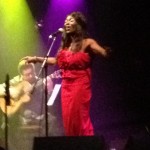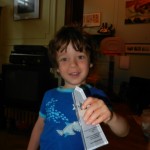I guess right now I’m thinking about singers. On Sunday night, I heard Buika. Concha Buika, who goes by only her surname, was born in the Mediterranean island of Majorca, where her parents settled after fleeing the repressive government of Equatorial Guinea. She sings with an emotional style drawn from Gypsy and flamenco music, and a rasp in her voice and a feel for the blues … [Read more...] about buika’s spell & boutté’s magic
blumenfeld honored at jja awards
Good news to share: I'm pleased to report that at yesterday's Jazz Journalists Association Awards ceremony at the Blue Note, I was presented the HELEN DANCE-ROBERT PALMER AWARD FOR WRITING IN 2011. A complete list of awards, for musicians and journalists, can be found here. I tend not to think too much about awards for things like writing and making music, though I vote … [Read more...] about blumenfeld honored at jja awards
in praise of community organizers
Remember four years ago, when Obama was running for president and Sarah Palin mocked the very notion of a community organizer? The Jazz Journalists Association has what they call a blogathon going on through April 30th, and the theme is community. It's hard to write about jazz and not be thinking about community--my community and jazz's presence in it, and the many … [Read more...] about in praise of community organizers
jeremy lin scores! (um, this isn’t about music…)
During Jeremy Lin's dizzying rise from obscurity to fame, before the New York Knick's promotion department had even printed the fan posters, the point guard had been held up as poster boy for a variety of things. Christian faithful pointed to his unabashed faith, fashioning him the successor to quarterback Tim Tebow on a touched-by-god run. Author Gish Jen reflected on his … [Read more...] about jeremy lin scores! (um, this isn’t about music…)
remembering sam rivers
Like so many music lovers, I'm mourning the death of Sam Rivers. I heard Sam play a few times, late in his life. Never back in the day, at the RivBea loft, though. But I do have a very clear memory of attending Jason Moran's sessions that led to his 2001 release Black Stars, at Systems Two in Brooklyn. Jason was maybe 25 at the time, Sam 77. Saxophonist Greg Osby, in … [Read more...] about remembering sam rivers





